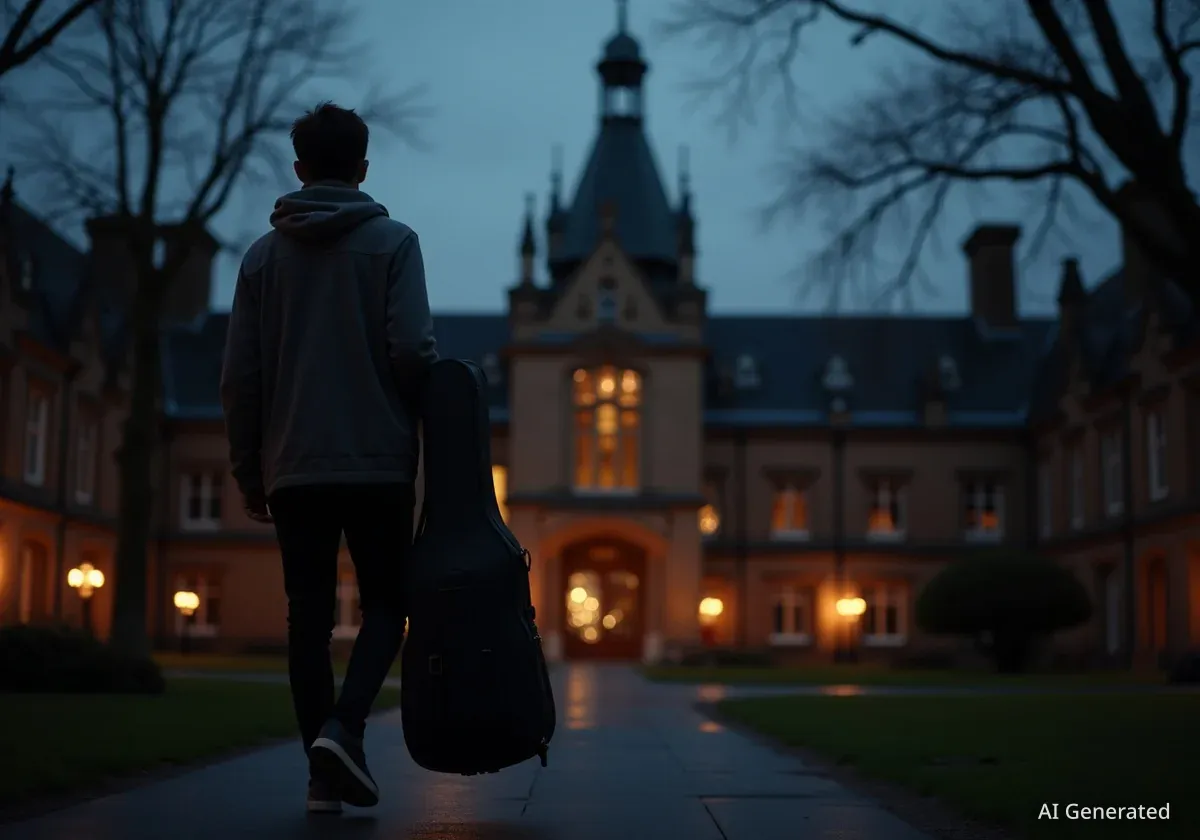The Harvard-Radcliffe Orchestra (HRO), one of the oldest collegiate orchestras in the United States, has been suspended for the remainder of the academic year. The decision follows a university investigation that found the student-run organization responsible for hazing activities, including behavior involving alcohol and servitude.
This disciplinary action halts all of the orchestra's activities, including rehearsals, concerts, and social events, impacting dozens of student musicians and canceling scheduled performances for the spring semester.
Key Takeaways
- The Harvard-Radcliffe Orchestra is suspended for the rest of the 2023-2024 academic year.
- An investigation by Harvard's Office of Student Conduct confirmed hazing violations.
- Allegations include activities involving alcohol, servitude, and creating a power imbalance.
- All orchestra activities are canceled, affecting students' performance schedules and academic credits.
- The suspension highlights a growing trend of universities enforcing stricter conduct policies for all student groups, not just athletics.
University Confirms Disciplinary Action
Harvard University officials confirmed the suspension in early 2024 after a thorough review by the Harvard College Administrative Board. The investigation concluded that the HRO had engaged in activities that violated the university's strict anti-hazing policies.
In an official statement, a spokesperson for the Faculty of Arts and Sciences noted that the organization was found responsible for hazing. The university emphasized its commitment to fostering a safe and inclusive environment for all students, free from the pressures and dangers of hazing rituals.
The suspension is one of the most significant disciplinary actions taken against a prominent arts organization at the university in recent memory. It affects approximately 100 undergraduate student musicians who participate in the ensemble.
A Legacy of Music
Founded in 1808, the Harvard-Radcliffe Orchestra is the oldest continuously operating symphony orchestra in the United States. It has a distinguished history of performances, international tours, and collaborations with world-renowned conductors and soloists. Its suspension marks a significant disruption in its more than 200-year history.
Details of the Hazing Allegations
The investigation into the HRO focused on initiation practices for new members. According to reports, these activities created a coercive environment and a significant power imbalance between senior members and new inductees.
Specific allegations that emerged from the investigation include:
- Forced Alcohol Consumption: New members were reportedly pressured to consume alcohol as part of the initiation process.
- Acts of Servitude: The activities allegedly included tasks that amounted to servitude, where new members were required to perform duties for senior members.
- Coercive Environment: The overall culture of the initiation was found to be intimidating and not in line with university standards for student organizations.
These actions are in direct violation of Harvard's student conduct policies, which explicitly prohibit any activity that could be perceived as hazing, regardless of an individual's willingness to participate.
"Hazing is prohibited at Harvard. Period," a university official familiar with the policy stated. "It doesn't matter if it's an athletic team, a final club, or an arts group. The rules are the same for everyone, and the goal is to protect student well-being."
Impact on Student Musicians and Performances
The immediate consequence of the suspension is the cancellation of the orchestra's entire spring season. This includes regular rehearsals, on-campus concerts, and potentially a planned international tour, which is a significant part of the HRO experience for many students.
For the student musicians, the impact is substantial. Many receive academic credit for their participation in the orchestra, which is now in jeopardy. Graduating seniors in the orchestra will lose their final opportunity to perform with the ensemble, a culminating experience for their collegiate music careers.
The HRO's student leadership has not issued a public statement following the university's decision. The organization is required to work with the Office of Student Engagement to develop a plan for reform before it can be reinstated. This plan must address leadership training, recruitment practices, and organizational culture to prevent future violations.
By the Numbers: Collegiate Hazing
According to a national study by StopHazing.org, more than half of college students involved in clubs, teams, and organizations experience hazing. While often associated with Greek life and athletics, the study found that 55% of participants in groups like arts, music, and academic clubs also experienced hazing behaviors.
A Broader Trend in Higher Education
Scrutiny Beyond Athletics
The suspension of a prestigious orchestra like the HRO underscores a broader shift in how universities are addressing hazing. For decades, the focus of anti-hazing efforts was primarily on fraternities, sororities, and sports teams. However, institutions are now applying the same level of scrutiny to all student-run organizations.
This incident serves as a clear signal that academic and arts groups are not immune to the cultural issues surrounding hazing. Universities are increasingly taking a zero-tolerance approach across the board, recognizing that harmful power dynamics and coercive rituals can exist in any type of student group.
Similar Cases at Other Institutions
While the HRO case is high-profile, it is not an isolated event in the world of collegiate arts. Other music and academic programs have faced similar reviews. For example, concerns over student culture and faculty conduct have been raised at other leading institutions like the University of Rochester’s Eastman School of Music, prompting internal reviews and policy changes.
These cases reflect a growing awareness of the need for clear conduct standards and robust oversight for all student activities. The goal is to ensure that extracurricular involvement contributes positively to student development without compromising safety or well-being. The actions taken by Harvard are likely to be reviewed by other universities as a model for enforcing their own conduct policies.
As the HRO works toward reinstatement, its members and the wider Harvard community will be watching closely. The process of reform will be critical in rebuilding trust and ensuring the orchestra can return to its mission of musical excellence within a safe and respectful environment.




